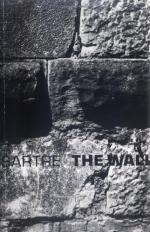|
This section contains 7,673 words (approx. 20 pages at 400 words per page) |

|
In the essay below, Sweeny finds "The Wall" more than just a story about fear and death; he asserts that the story "needs to be seen as a developed, philosophical argument."
Despite the lingering "old quarrel between philosophy and poetry" over the suitability of presenting a philosophical investigation in literary form (Plato's Republic 607 B), philosophers regularly use literary genres to present their ideas. Jean-Paul Sartre's short story "The Wall" is an example of such a philosophical project. In the story Sartre offers a counter-example to one of Husserl's views and an illustration supporting his own alternative position. Sartre's particular project is easy to overlook given the vivid, extended descriptions of the central characters' terrified reactions to the prospect of their execution. Critics routinely interpret the story as a phenomenological account of the emotional state of terror in the face of death. They refer to "The Wall" as...
|
This section contains 7,673 words (approx. 20 pages at 400 words per page) |

|




